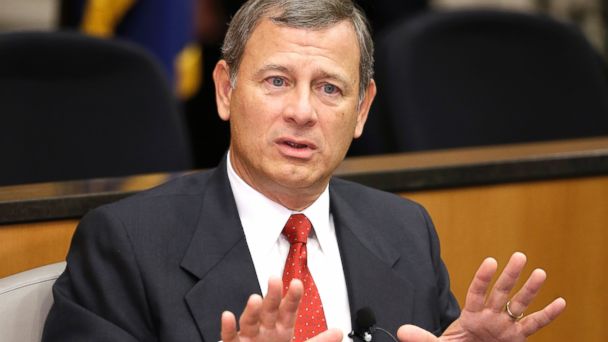Chief Justice Roberts: Justices Scalia, Ginsburg Wouldn't Be Confirmed Today

Nati Harnik/AP Photo
LINCOLN, Neb. - Chief Justice John Roberts expressed concern today over the bitter partisanship gripping Washington, saying two sitting justices who sailed to confirmation would never make it through the Senate today.
In a speech at the University of Nebraska College of Law, Roberts said the executive and legislative branches of government are in "a period of real partisan rancor that impedes their ability to carry out their functions." He said the deepening gridlock threatens judicial confirmations and is eroding confidence in the third branch of government.
He cited the 2010 confirmation of Elena Kagan, who was elevated to the Supreme Court on a partisan Senate vote of 63-37. He compared that to conservative Justice Antonin Scalia, who was confirmed unanimously in 1986 and liberal Justice Ruth Bader Ginsburg, who sailed through the Senate in 1993, on a vote of 96-3.
"Neither of them would have a chance today," Roberts said. "That's not good."
He said that he fears Americans will see the Supreme Court as a "political entity."
"I worry about people having that perception, because it's not an accurate one about how we do our work," Roberts said. "It's important for us to make that as clear as we can to the public."
It was a rare public appearance by Roberts, who answered questions from students and the legal community here for about an hour. He has long lamented the changing perception of the court, but his pointed remarks about partisanship suggested that his worries are growing as the divide deepens between Congress and the White House.
In his remarks, he also offered a rare window into the workings of the Supreme Court, the most secretive and closed branches of the U.S. government.
When asked whether it was difficult for the justices to find agreement on some high-profile cases, he laughed and declared: "Difficult? Sometimes, it's impossible!"
One of the most enjoyable parts of his job, he said, was assigning opinions to justices. He said he tries to make sure the workload is evenly divided, saying.
"You want someone to have the fair share of the important cases that people are interested in," Roberts said, "and a fair share of what we call the dogs."
He said he knows that many Americans are likely unaware that he is the chief justice of the United States, joking that many people may assume it's "Judge Judy."
"They don't need to know who we are. They do need to know what we do," Roberts said. "It's critically important that people do appreciate that."
So why did Roberts choose the University of Nebraska to give one of his rare public speeches?
There's a big college football game here this weekend, Nebraska v. Miami, and he'll be on hand to watch the Huskers and Hurricanes.